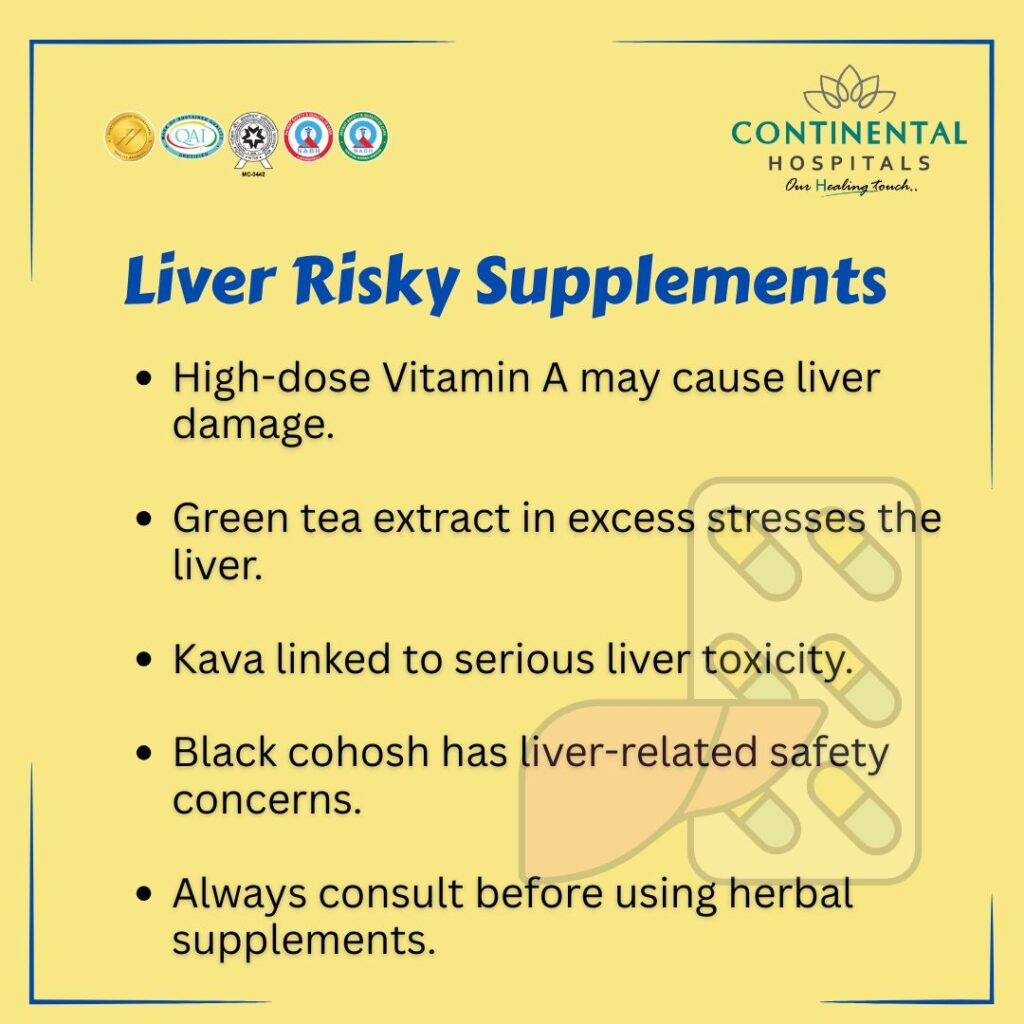When you reach for that bottle of “natural” supplements promising better energy, clearer skin, or stronger immunity, you’re making what feels like a healthy choice. After all, if it’s natural, it must be safe, right? Unfortunately, this common assumption has led millions of people down a potentially dangerous path.
Recent cases of liver failure linked to turmeric supplements and kidney damage from excessive protein powders have medical experts sounding the alarm. What many don’t realize is that the supplement industry operates with far less regulation than prescription medications, creating a perfect storm for unintended health consequences.

Dr. Sudeep Khanna, a senior gastroenterology consultant, puts it bluntly: “Natural doesn’t always mean safe, and the line between medicine and poison often lies in the dosage.” This sobering reality check comes at a time when supplement use has reached an all-time high, with many people treating these products as harmless additions to their daily routine.
Understanding the hidden dangers lurking in your medicine cabinet could save you from serious health complications. Let’s examine the five most common supplement mistakes that can quietly damage your liver and kidneys.
Taking “Natural” Supplements Without Checking Drug Interactions
The word “natural” on a supplement label creates a false sense of security. Herbs like comfrey, kava, and concentrated green tea extract are marketed as wellness boosters, but they can cause severe liver toxicity, especially when combined with prescription medications.
Your liver works overtime to process everything you consume, including both medications and supplements. When you add herbal supplements to the mix without medical supervision, you’re essentially asking your liver to handle unfamiliar compounds that may interfere with how your prescribed drugs work.
Kava, for example, has been linked to liver failure in multiple countries, leading to bans in several European nations. Green tea extract, while beneficial in moderate tea form, becomes potentially toxic when concentrated into supplement form. These products can overwhelm your liver’s processing capacity or create dangerous interactions with medications you’re already taking.
The kidneys also bear the burden of filtering these unfamiliar substances. When your body encounters compounds it wasn’t designed to process in large quantities, inflammation and long-term damage can occur. This risk multiplies when you’re taking multiple supplements simultaneously.
Always consult with a healthcare provider before adding any herbal supplement to your routine, especially if you’re taking prescription medications. What seems like a harmless addition could create a dangerous chemical interaction in your body.
Overdoing Protein Supplements
Protein supplements have become a cornerstone of many fitness routines, but excessive use puts unnecessary stress on your kidneys. While protein is essential for muscle repair and growth, consuming more than your body needs creates nitrogen waste that your kidneys must filter out.
Many fitness enthusiasts unknowingly consume twice their recommended protein intake, thinking more equals better results. This approach can backfire, especially for people with undiagnosed kidney conditions. Your kidneys may cope initially, but over time, the extra workload can accelerate kidney wear and tear.
The problem becomes worse when people use protein supplements as meal replacements or consume multiple servings daily without understanding their actual dietary needs. A sedentary adult typically gets adequate protein from regular food sources, making supplementation unnecessary.
Quality control is another concern. Some protein products contain additives, artificial sweeteners, or even unlisted substances that can cause additional health issues. The lack of strict regulation means you might not know exactly what you’re consuming.
Before starting any protein supplementation, assess your actual needs with a healthcare provider or registered dietitian. Consider your activity level, current diet, and health status. If you do use protein supplements, choose reputable brands with third-party testing and avoid treating them as primary nutrition sources.
Combining Multiple Supplements with Overlapping Ingredients
Walking down the supplement aisle, you’ll find multivitamins, immunity boosters, hair growth tablets, and specialty formulas. What’s less obvious is that many of these products contain the same ingredients, creating an easy path to accidental overdoses.
Taking a multivitamin, an iron supplement, and a “women’s health” formula simultaneously might seem harmless, but you could be tripling your iron intake without realizing it. Excess iron doesn’t simply wash out of your system it accumulates in organs, particularly the liver, where it can cause inflammation and scarring.
Vitamin A presents another common problem. Found in multivitamins, skin supplements, and liver support formulas, vitamin A toxicity can develop when multiple products are stacked. Unlike water-soluble vitamins that your body can eliminate, fat-soluble vitamins like A, D, E, and K build up in your tissues.
The challenge lies in supplement labeling, which doesn’t always make ingredient overlaps obvious. Companies use different names for the same nutrients, making it difficult for consumers to track their total intake across multiple products.
Create a comprehensive list of all supplements you’re taking, including their complete ingredient profiles. Look for duplicates and calculate your total daily intake of key nutrients. This simple step can prevent dangerous accumulations that could harm your liver and kidneys over time.
Relying on Fat Burners and Detox Products
The weight loss and detox supplement market thrives on promises of quick results, but many of these products contain ingredients that can seriously compromise kidney and liver function. Fat burners often include stimulants, diuretics, or laxatives that force your body to work in unnatural ways.
Ingredients like synephrine, concentrated caffeine, and dandelion extract might appear harmless on labels, but they can cause dehydration, electrolyte imbalances, and increased kidney workload. When your body becomes dehydrated from diuretic effects, your kidneys struggle to filter waste effectively.
Detox supplements present a particular irony products marketed to “cleanse” your body often contain synthetic additives that increase the toxic burden on your liver. Your liver naturally detoxifies your body daily; adding unregulated compounds to this process can create oxidative stress and cellular damage.
Many detox formulas lack scientific backing for their detox claims. Instead of supporting your body’s natural cleansing processes, they may hinder them by overwhelming your organs with processing demands they weren’t designed to handle.
Rather than relying on supplements for weight loss or detoxification, focus on supporting your body’s natural processes through adequate hydration, fiber-rich foods, and regular exercise. Your liver and kidneys are incredibly efficient when given the right support through lifestyle choices rather than synthetic interventions.

Ignoring Health Conditions and Self-Medicating
Perhaps the most dangerous supplement mistake is self-prescribing without considering your existing health conditions. Common conditions like high blood pressure, diabetes, and fatty liver disease significantly change how your body processes supplements, but many people ignore these factors when choosing products.
Creatine supplements, popular among fitness enthusiasts, can worsen kidney function in people who already have compromised kidney health. Similarly, high-dose vitamin D or calcium can cause kidney stones or calcification in susceptible individuals.
People with fatty liver disease face particular risks when taking any supplement that requires liver processing. Their already-stressed livers may not handle additional compounds effectively, leading to further damage or complications.
The problem extends beyond obvious health conditions. Many people have subclinical kidney or liver dysfunction that hasn’t been diagnosed yet. What seems like a harmless supplement routine could accelerate problems that would have remained manageable with proper medical oversight.
Blood pressure medications, diabetes drugs, and blood thinners all interact differently with supplements. Without professional guidance, you might unknowingly create dangerous drug interactions or worsen your existing conditions.
Schedule a comprehensive health assessment before starting any supplement regimen. Discuss your complete health history, current medications, and supplement goals with qualified healthcare providers who can identify potential risks specific to your situation.
FAQs: Frequently Asked Questions
Q. Are all natural supplements safe to use?
A. No, not all natural supplements are inherently safe. Many can interact with medications, cause adverse side effects, or harm your liver and kidneys when taken inappropriately or in excessive amounts. It’s important to consult a healthcare provider before adding any supplement to your routine.
Q. Can I combine different supplements?
A. Combining supplements can sometimes lead to adverse interactions or toxicity, especially if they contain overlapping ingredients like vitamins or minerals. Always review the labels and get professional advice to ensure safe usage.
Q. What are some warning signs that a supplement is harming my body?
A. Warning signs may include unusual fatigue, digestive issues, headaches, or changes in your urine color. If you experience any of these symptoms, stop using the supplement and consult a healthcare professional immediately.
Q. How can I verify the safety of a supplement?
A. Look for third-party certifications, such as those from USP or NSF, which can indicate that the product meets safety and quality standards. Research the manufacturer and check for any recalls or safety alerts related to the supplement.
Q. Should I talk to my doctor before taking supplements?
A. Yes, it’s highly recommended to talk to your doctor or a qualified health professional before starting any new supplement, especially if you have underlying health conditions, are pregnant, or are taking prescription medications.
The Safe Path Forward
The supplement industry’s marketing often outpaces the science, leaving consumers vulnerable to making decisions based on incomplete information. While supplements can provide genuine benefits when used appropriately, they require the same careful consideration you’d give any medical intervention.
Start by focusing on nutrition through whole foods before considering supplementation. Most nutrients are better absorbed and utilized when they come from natural food sources rather than isolated compounds. When supplements are necessary, work with healthcare providers who understand your individual health profile and can monitor for potential complications.
Choose products from reputable manufacturers that conduct third-party testing and provide transparent ingredient information. Avoid products that make dramatic health claims or promise quick fixes these red flags often indicate products that prioritize marketing over safety.
Remember that more is rarely better when it comes to supplements. Your body has optimal ranges for nutrients, and exceeding these ranges can be just as harmful as deficiencies. Regular monitoring through blood tests can help ensure your supplement routine supports rather than compromises your health.
The goal isn’t to avoid supplements entirely but to use them wisely. By understanding these common dangers and taking a more informed approach, you can make supplement decisions that truly support your long-term health rather than putting your liver and kidneys at risk.
For More Information Click HERE

